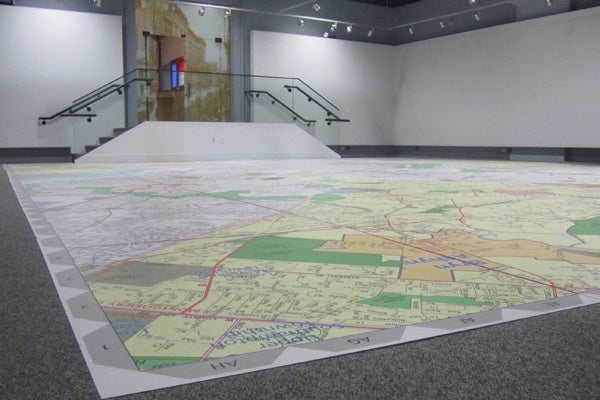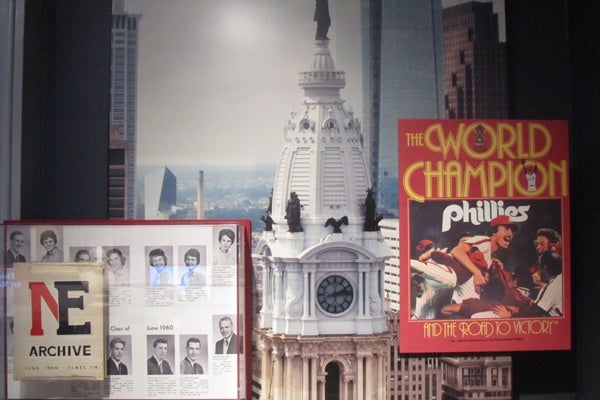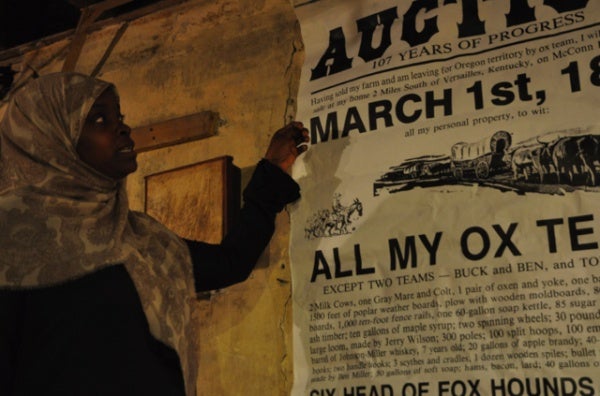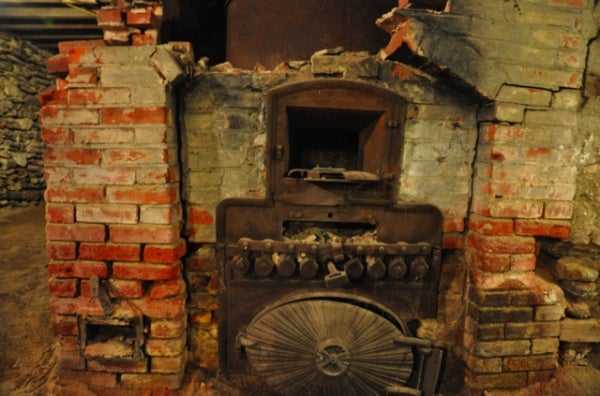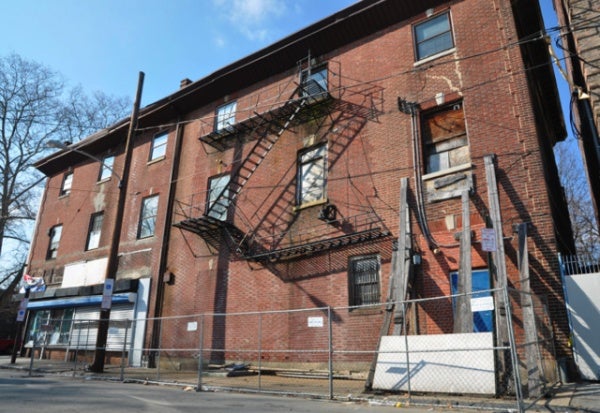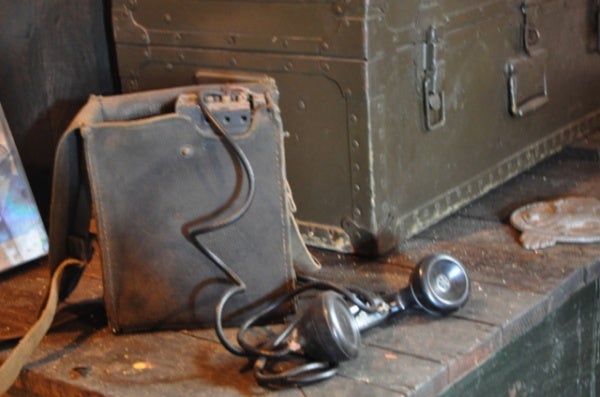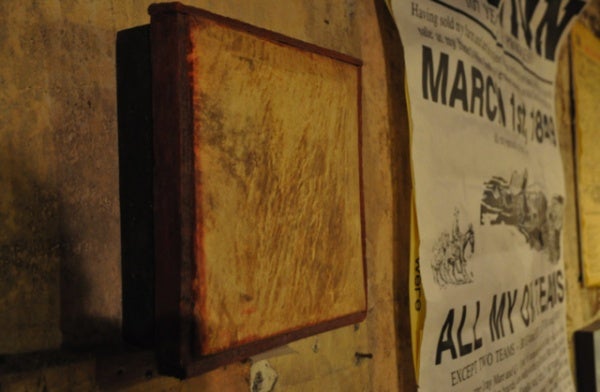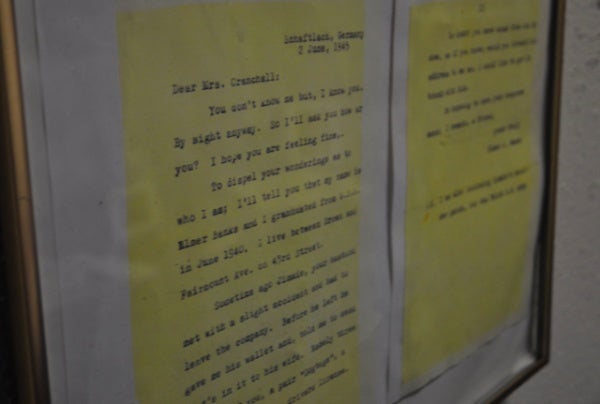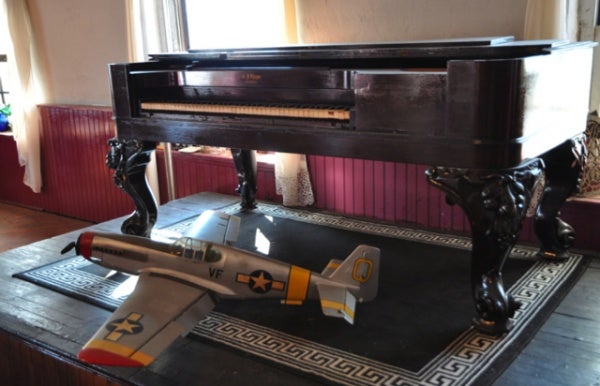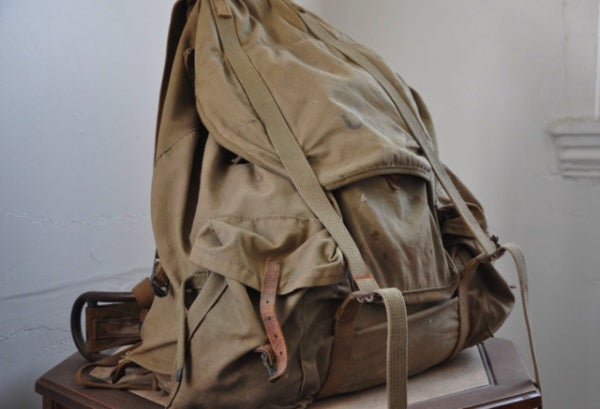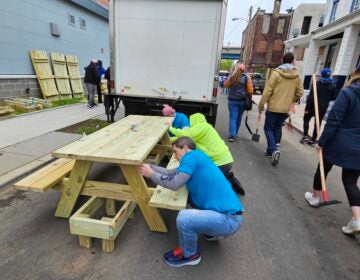A struggling Germantown Ave. museum will host Tuskegee veterans this week
Althea Hankins, founder and co-curator of the ACES Museum, was making her way down the steep cellar stairs of 5801 Germantown Ave. when she said, “The first step is a big one.” The statement was more than a watch-your-step warning.
A special exhibit in the basement features what Hankins believes to be slave quarters complete with a 19th century stove and high ceilings, but no windows. “Just like under the President’s House,” she said, referencing the African American servant rooms found beneath George Washington’s house near Independence Mall.
The collection is called “Makin’ De Nade,” as in making lemonade from lemons, because he museum itself has had many sour moments in the past few years.
In 2008, Hankins ran an educational program including historical puppet shows for children along with the museum in her spare time. The city was ready to condemn the building, but Hankins has made efforts to secure the structure. It’s far from being open to the public, though. Still, Hankins says it’s a place worth saving.
“With most museums, you bring the artifacts in,” she said walking on the dirt floor. “With this museum, we are the artifact.”
A historic discovery
Hankins didn’t plan on opening a museum.
She owns the property and runs her medical practice out of the first floor. However, in 2002, she discovered her private practice was also the site of Parker Hall — an United Service Office style venue where parties were thrown for African American soldiers who relaxed after their stint in WWII.
She came to learn this after a stranger on an airplane showed her a picture from a 1940s flyer advertising a show at her address.
Her curiosity piqued, Hankins knocked down an extra wall that led to the third floor. There, she discovered an old piano and the dance hall in decent condition.
Due to structural safety issues, the second and third floors are off-limits to the public. That’s where the majority of WWII memorabilia is housed.
The city forced the museum to close those floors to the public in 2009. In an effort to bring the ACES museum back to life, they recently received a letter of support from the Germantown Historical Society seeking grant opportunities to breathe life back into the WWII museum.
Currently, structural supports (wooden scaffolding) sit along the outside south-facing wall. An engineer who inspected the building told Hankins it was structurally sound, but a number of restoration issues — bad stairs and old walls, for example — must also be addressed before the second and third floors are viable.
“They want the whole wall redone, but the price on it is $45,000 and we just don’t have that kind of money,” she said. “It’s a wonderful historic treasure and I just want to see it full of people and make it important again.”
The struggle continues
Hankins is not alone in the struggle. Three new volunteers have joined her team to help her spread stories of minority voices in military history. They are currently moving artifacts to the first floor for display.
LaShawn Clanton, a resident of Germantown, volunteers as a tour guide at the museum. She says she hopes to revive the educational programs for local kids.
“Everyone needs to learn where they came from, a lot of things were taken away from us,” she said of the slave trade, explaining that many slaves didn’t know their real names or birth dates in an effort to isolate them.
Organizers say the cellar floor has been stripped to the original dirt and stone structure but it isn’t always a popular attraction.
“Some people feel uncomfortable saying they feel the spirits of the slaves themselves,” said Taina Villarceau who started volunteering a few months ago. “But I don’t even think about that aspect, we have come a long way and I’m blessed.”
A big upcoming event
On Friday and Saturday, they plan to host the Tuskegee Airmen for a “ACES MUSEUM presents The Black Experience” celebration of Black History Month.
They will screen the documentary “Double Victory” by George Lucas Friday afternoon. Tuskegee veterans will have breakfast with recent ROTC recruits in the morning to make it an intergenerational affair and share their stories. Hankins said its important to keep them in touch.
“What happens is that when more of them die, the story is not getting told in the correct way and history is very important because it predicts the future,” she said, citing medical issues that she says plague the black community including HIV and diabetes.
The way she sees it, understanding black history offers a sense of pride and encouragement that is sometimes missing.
“If you have a people that respect their past, they are going to respect their elders, and respect their future,” saying that young people need to learn about the real heroes. “We view the museum as a social vaccine.”
WHYY is your source for fact-based, in-depth journalism and information. As a nonprofit organization, we rely on financial support from readers like you. Please give today.




